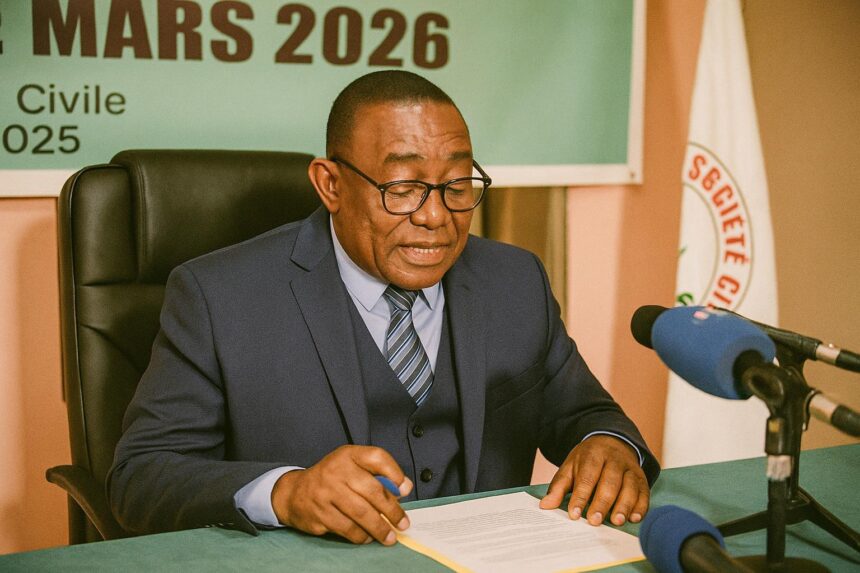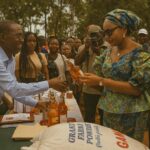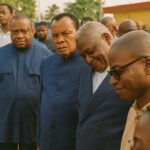Electoral Stakeholders Call for Renewed Dialogue
With less than a year separating the Republic of Congo from its next presidential ballot, the Coordination of National Networks and Associations on Electoral Governance and Democracy, better known by its French acronym Coraged, has placed a deliberate emphasis on dialogue. Meeting in Brazzaville under the aegis of the Permanent Secretariat of the National Consultative Council for Civil Society and Non-Governmental Organisations, six prominent associations issued a statement urging a national consultation prior to the March 2026 vote. Their communiqué, articulated by Secretary-General Céphas Germain Ewangui, underscored that a truly credible election must be preceded by an open forum where political actors, security services, media and civic groups converge over ground rules and logistical architecture.
A Tradition of Consultative Politics Since 2002
The appeal is not a rupture with precedent but a continuation of a political culture carefully cultivated over the past two decades. Since 2002, the Congolese state has convened broad-based consultative assemblies ahead of each nationwide poll, even in fiscally challenging circumstances. Those forums, called by President Denis Sassou Nguesso, have enabled stakeholders to negotiate electoral calendars, agree on the allocation of public media airtime and refine security protocols. Domestic observers often note that such gatherings have contributed to the punctual holding of legislative and presidential contests, an accomplishment recognised in successive reports of the African Union Election Observation Missions and corroborated by the sub-regional ECCAS reviews.
Civil Society’s Rationale for an Early Forum
Coraged’s leadership contends that accelerating the consultative timetable will allow reforms to be operationalised well before candidate registration begins. In his closing remarks, Ewangui declared that elections should cease to be “those dreaded seasons of turbulence” and evolve into milestones of social cohesion. The network’s communiqué accordingly calls on all actors to respect constitutional norms, safeguard press freedom and uphold personal security as indivisible pillars of democratic governance. For seasoned civil-society campaigners such as Madeleine Nkouka of the Congolese League for Human Rights, a timely dialogue would “anchor the 2026 race in consensus rather than contestation”, a sentiment echoed in recent UN Development Programme policy briefs reviewing Central African electoral trajectories.
Government’s Institutional Commitments
Senior officials within the Ministry of Territorial Administration privately insist that the administration remains open to convening what it terms “a pragmatic and inclusive forum” once technical consultations with the electoral commission are completed. In previous cycles, the government has adopted a phased approach: first calibrating the voter wp-signup.php, then debating campaign finance ceilings, and finally validating a joint code of conduct. According to a 2024 International Institute for Democracy and Electoral Assistance assessment, Brazzaville’s incremental methodology has “steadily expanded political trust, even if residual scepticism persists among smaller opposition factions”. Echoing that assessment, parliamentary deputy Olivier Koumba described the consultations as “an instrument of stability rather than a ritualistic concession”.
International Perspectives and Technical Support
External partners view the forthcoming election as a litmus test for the broader Central African security corridor. The Economic Community of Central African States has already dispatched an exploratory mission, while the European Union is considering a limited technical observation mandate focused on digital results transmission. Diplomats in Brazzaville affirm that donor assistance, including biometric kits and training modules, will be calibrated to nationally defined priorities. As one senior African Union envoy remarked, “Congolese ownership of the process enhances legitimacy; external actors merely scaffold that ownership”. The sentiment dovetails with the government’s insistence on sovereign control, even as it welcomes advisory expertise.
Balancing Security and Civil Liberties
Security sector planners face the dual task of guaranteeing public order while honouring the civil liberties highlighted by Coraged. The Interior Ministry’s 2025 white paper commits to a proportional policing model, emphasising de-escalation training and community liaison units. Human-rights monitors concede that the 2021 presidential election recorded fewer security incidents than the 2016 cycle, attributing the improvement to clearer rules of engagement and expanded deployment of mobile courts. Analysts at the Institute for Security Studies nonetheless recommend an updated contingency framework to address the burgeoning role of social media in mobilising, and potentially polarising, electoral discourse.
Looking Ahead to March 2026
As the electoral timetable tightens, the convergence of state capacity and civic vigilance will determine whether the 2026 contest advances Congo-Brazzaville’s democratic consolidation. The call for a national consultation, far from signalling dysfunction, illustrates the maturing reflex of institutions and civil society to negotiate before tensions crystallise. In the words of political scientist Pascal Mavoungou, “Dialogue has become the country’s democratic muscle memory; exercising it once more can only strengthen the body politic”. Should the forum materialise by year-end, stakeholders will have a structured avenue to anticipate logistical challenges, affirm media ethics and reinforce the social contract. The quiet drums now sounding in Brazzaville suggest not an impending storm but a disciplined cadence toward a peaceful, legitimate ballot.




















